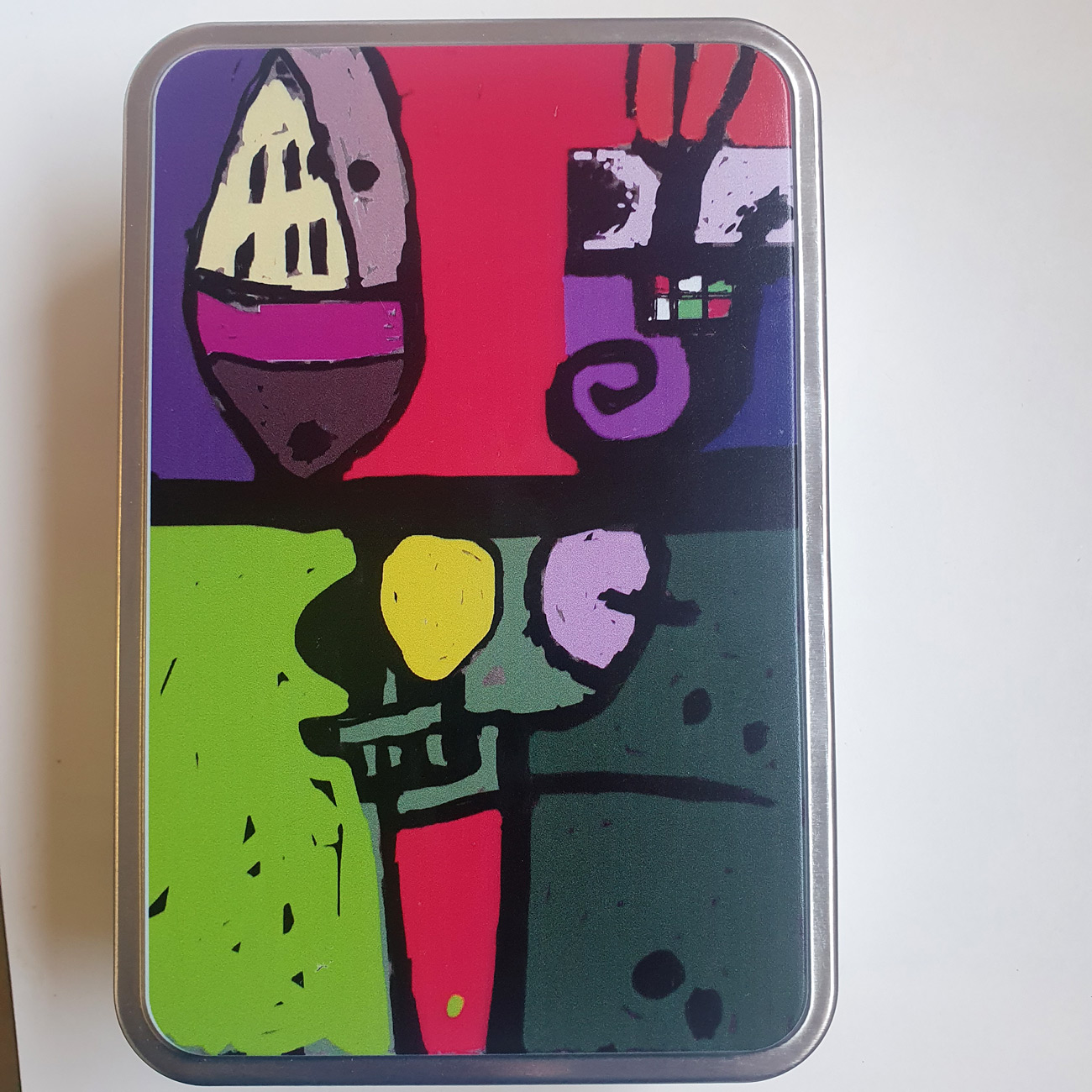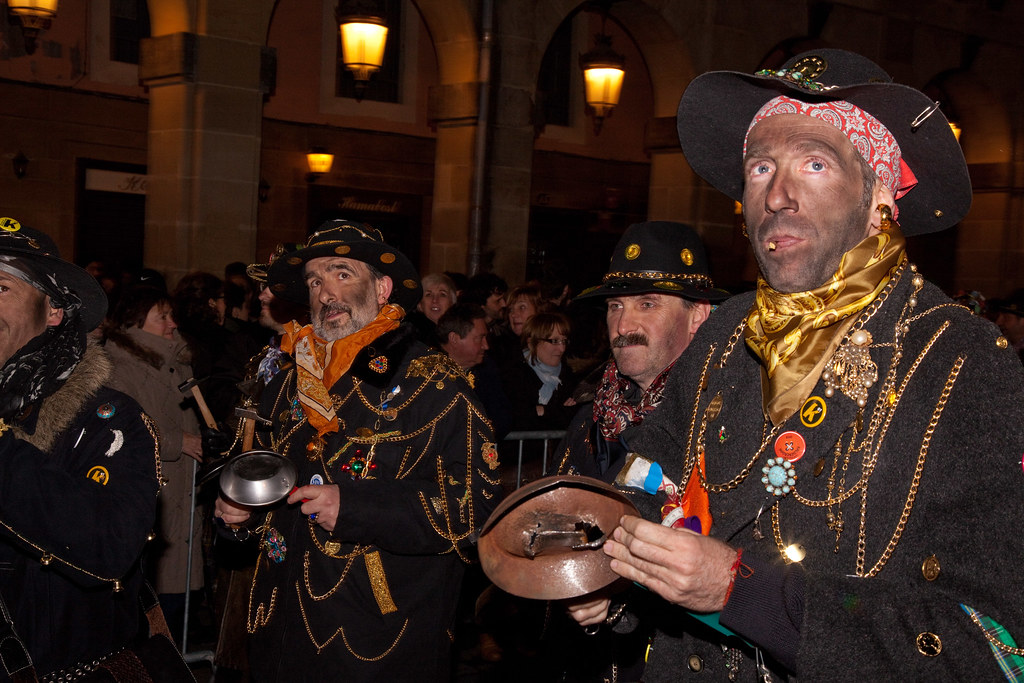Destination of evaporated glasses
Violation of the rules is not always evil. And, dear comrades, breaking the rules is not always a transgression. But literature seems to be infringing. It is believed that the rule of logic, that of the common, that of the inevitable, is why the literature is turned on to a large extent, until the rule is too broken by repetition and the infraction becomes a rule rather than in literature, or in cliché, or in dead colloquium (or in bad literature, in a spring). For infringement, the Literature has its own rules and milestones. Narrative, for example, is forced to marry the law of likelihood.
The case is older than cough: some of the things that really happen (by the rarity of the strange, by the extraordinary of the extraordinary, by the chance of some anecdotes or even surreal times that you want to tell the closest ones immediately) are almost too realistic, too real for, for example, in the narrative prose, to be plausible. It takes a lot of work and mastery and, in general, less material resources and a little bit of luck to bring and function those things too real to literature and art. Fortunately, there is a chance to do so.
“The end that art would choose is not always chosen by life, although then life believes in what art tells it. That is the victory of the end of art: the credulity of the world towards him.” Here are the words of the narrator of Harkaitz Cano, The voice of the faquir. The relevant question is, therefore, why writers bring what they bring back then (because writers in general tend to bring more than guess): To know what happened and how it happened? Or to believe and persuade that it has happened in a certain way? Or is it to believe and persuade that life is the reflection of something more or less desirable or visionary that literature tells, and not a more or less desirable or visionary reflection of literary life?
“Have you noticed that when you tell a dream, things change, you can’t tell how you have dreamed, they’re too much to tell, you can’t give them in a natural narrative?” They are the words of one of the protagonists of Fuente de Unai Elorriaga. And memory always has that vague dreamer nuance; if not, it would not be such an important and difficult issue, neither the same memory, nor its disgraceful account. The problem is that just as dreams are another world, so the past is another world, and you can never tell the world from within that world in an instant. From the inside, too close, it's not possible. Ophthalmologists call it hypermetropia. In order to recount, classify and value in some way what happened, perspective is needed, that is, distance and time, but in this way of maturing a perspective, the details are lost, the marks that transformed it into what it was; that is, it diffudes how that was what we are referring to: an episode of anxiety of euphoria or sadness of joy, of potato skins or leisure, or of barba or misery. Among other things, we have literature as a starting point, that oral and written infraction.
Not only historians, but also historians, will make the memory of our (kuts)times from evaporated morning lenses.
Bidali zure iritzi artikuluak iritzia@argia.eus helbide elektronikora
ARGIAk ez du zertan bat etorri artikuluen edukiarekin. Idatzien gehienezko luzera 4.500 karakterekoa da (espazioak barne). Idazkera aldetik gutxieneko zuzentasun bat beharrezkoa da: batetik, ARGIAk ezin du hartu zuzenketa sakona egiteko lanik; bestetik, egitekotan edukia nahi gabe aldatzeko arriskua dago. ARGIAk azaleko zuzenketak edo moldaketak egingo dizkie artikuluei, behar izanez gero.
In 2021 we began to hear the first echoes of the Guggenheim Urdaibai project. The then General Manager Unai Rementeria told us that it would be done yes or yes. To reinforce his claims, he left 40 million euros “shielded” by the time the museums were built. There it is!... [+]
"(The purpose of the Oion Plenary) is clear, to legitimize by law the energy megaprojects with significant irregularities in the processing"
Last Wednesday we had a hard and unpleasant day, not only for Labraza, but also for all the towns where we are threatened by a wind,... [+]
Just as we experienced the flourishing of the Basque Country with the help of the artists, so that this time, taking advantage of their impulses, we continue to make our way together giving the necessary support to the Basque political prisoners, exiles and deportees
The... [+]
Epistemology, or theory of knowledge, is one of the main areas of philosophy, and throughout history there have been important debates about the limits and bases of our knowledge. Within this we find two powerful corridors that propose different ways of accessing knowledge: The... [+]
We learned this week that the Court of Getxo has closed the case of 4-year-old children from the Europa School. This leads us to ask: are the judicial, police, etc. authorities prepared to respond to the children’s requests? Are our children really protected when they are... [+]
Gure lurraldeetan eta bizitzetan sortzen diren behar, desio eta ekimenen inguruan gero eta gehiago entzuten dugu harreman eta proiektu publiko-komunitarioak landu beharraz, eta pozgarria da benetan, merkaturik gabeko gizarte antolaketarako ezinbesteko eredua baita. Baina... [+]
We have renewed the dialogue in the secretariat of the faculty, for the most auspicious: they are far away, for their enrollment, the times when only the students came. The trend has changed for a long time, and parents – most notably mothers – are taking an increasingly... [+]
The argument of a syllogism has three propositions, the last of which is necessarily deduced from the other two. It is with this deductive logic that I can analyze, for me, the long and traumatic socioecological conflict in Carpinteria that is taking place in Navarre.
The... [+]
I have recently worked in class on Etxahun Barkox’s beautiful and touching cobla. The bad guy! The afflictions of the house began because of the creation of the “praube with beauty”, but in seventeen years she had entered the sea of misfortune, having to abandon the girl... [+]
Azken egunak garrantzi handikoak izan dira Bartzelonan, etxebizitzaren aldeko mugimenduarentzat eta espekulatzaileen aurkako borrokarentzat. Urtarrilaren 28an, polizia-armada batek Raval auzoko Massana Zaharrari [zentro sozial okupatua] eraso egin zion goizaldean, aurrez abisatu... [+]
Zer jakin behar dut? Norekin erlazionatu behar dut? Non bizi behar dut? Ardura horiekin gabiltza gizakiok gure gizarteen baitan bizitza on baten ideia bizitzeko bidean. Ondo erantzuten ez badakigu, bazterretan geratuko garen beldurrez.
Joan den astean, kanpoan geratzearen... [+]
I don't want my daughter disguising herself as a Gypsy in the caldereros. I don’t want Gypsy children at my daughter’s school to dress up as Gypsies in caldereros. Because being a gypsy is not a disguise. Because being a gypsy is not a party that takes place once a year, with... [+]
The road goes by steps, and I learned a little while ago that it seems to have already begun. But people also want to learn to fill that sentence with content. Alone we could achieve little, maybe even resignation as soon as we started. Gathering huge crowds can also complicate... [+]





















